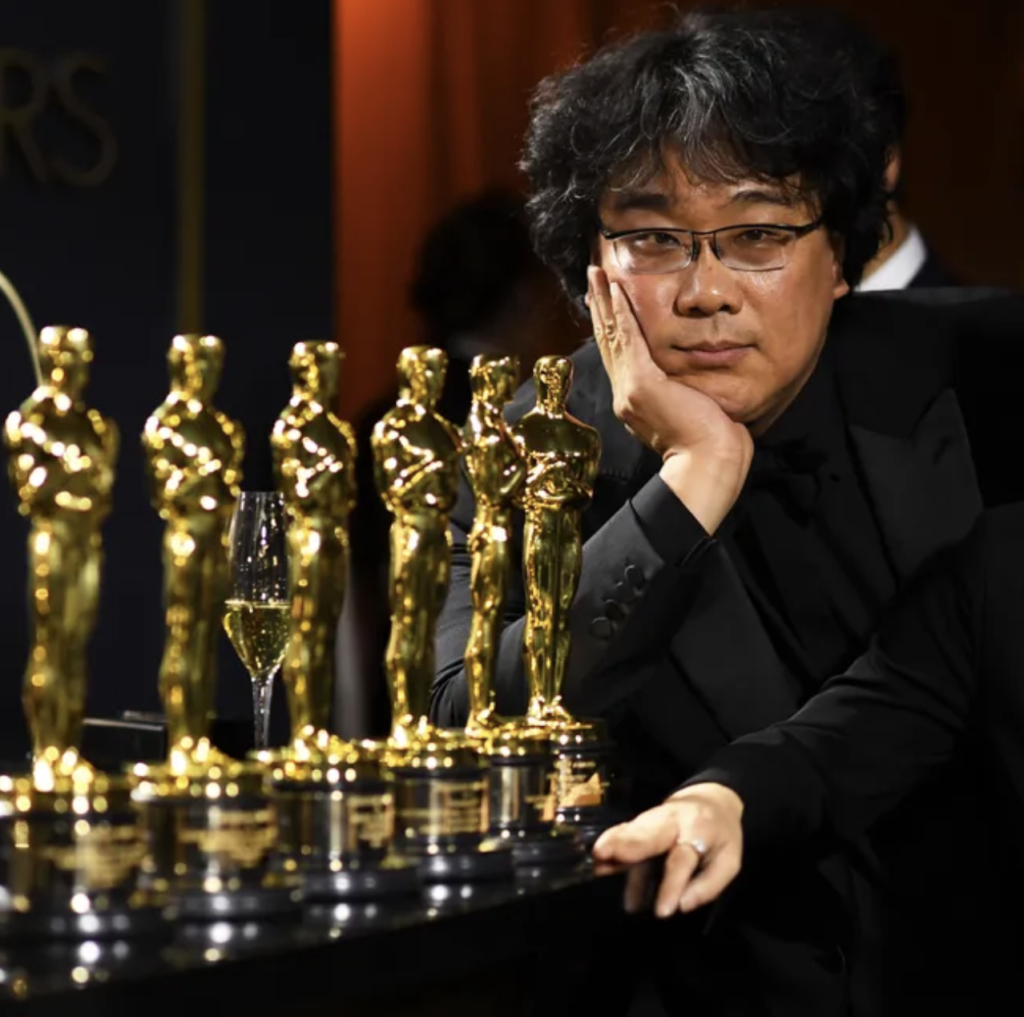Film Maker Bong Joon-Ho on Anti-Asian Violence

Image Courtesy of The Vulture
By Angela Hickey
Oscar-winning director, Bong Joon Ho, spoke out about the recent acceleration of Anti-Asian crimes spanning the country, stating how Hollywood can help tackle the issues head-on in order to make a proper change.
The acclaimed creator of Parasite, which swept the 92ndAcademy Awards and won in categories such as Best Director and Best Picture, spoke about this pressing issue during Chapman University’s Dodge College Master Class series, where he was presenting as a guest speaker.
“I’m far away in Korea and I have to see everything in the news from an outsider’s perspective, but as someone who is a part of mankind, as a person, it’s quite fearful to watch the hate crimes against Asian-Americans and the BLM movement,” the Parasite filmmaker said. “Creating a film takes a lot of time and a lot of money; it’s a big unit that can’t really respond quickly to issues that are currently happening in society. … But ironically, because of that, creators and filmmakers can be bolder with dealing with issues and they shouldn’t be afraid to confront them.”
Joon-Ho’s statement comes from the recent drastic increase in hateful and violent crimes against Asian-Americans, citing a near 150% increase in 2020 according to reports done by NBC News. Karthick Ramakrishnan, founder and director of demographic data and policy research nonprofit AAPI Data, told NBC that while the uptick cannot be entirely attributed to incendiary, racist rhetoric about the coronavirus, he believes former President Donald Trump’s wielding of the fact that the virus originated in China and repeated elevation of the “China virus” rhetoric did play a part in fostering hate.
The analysis revealed a surge in cities such as New York, where anti-Asian hate crimes rose from three in 2019 to 28 in 2020, an 833% increase. Los Angeles and Boston also experienced notable rises, from seven to 15 and six to 14, respectively. Meanwhile, Washington, D.C. experienced a decline from six to three anti-Asian hate crimes. Chicago remained unchanged, with two crimes each year.
During Joon-Ho’s talk at the master class, he stated how Hollywood could respond to this rise in violence by being unafraid to tell bold stories that tackle the issues as a way to create change, citing fellow director Spike Lee’s Do The Right Thing (1989) as an example.
“That film came out in 1989,” he noted. “It was three years before the L.A. Riots but almost predicted the riots were going to happen. That’s the role creators and artists can play, not necessarily to predict what will happen in society but to use your insight to portray the issues that are currently boiling underneath the surface of society that can explode later on.”
He continued: “As creators and artists, you sort of have to see through the essence and the central questions in our society through the days that you live through and send a reply to those questions through your work.”
Joon-Ho was the latest high-profile Hollywood insider to have appeared as part of Chapman’s Dodge College Master Class series, following Bryan Cranston, Frank Marshall, Jason Blum, Lena Waithe, and former Warner Bros. communications executive Dee Dee Myers. He weighed in on a number of subjects by offering advice on how to stay focused while trying to break into the industry, using camera movement to tell a story, and the hot button topic of movie theaters vs. streaming.
Bong Joon-Ho encourages action through art, stating how he tried to do so through his own film. “[Parasite] talks about the haves and have-nots of our current society. It began with a question of ‘what does it mean to be poor or rich in our current times?’ As creators and artists, you sort of have to see through the essence and the central questions in our society through the days that you live through and send a reply to those questions through your work,” he said.





